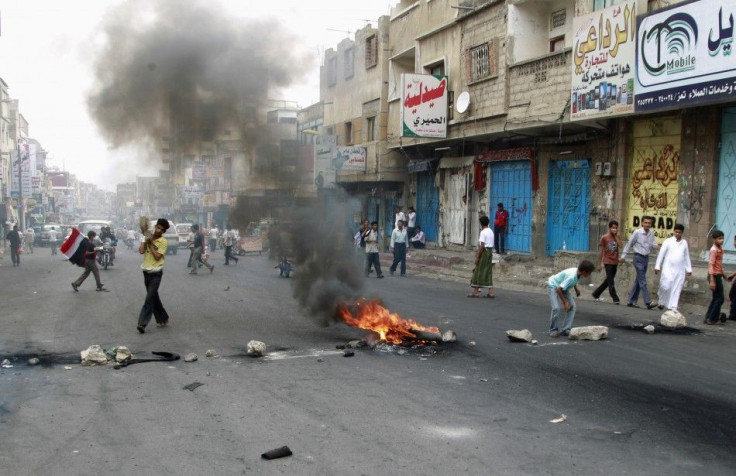Yemen Crisis: Special forces to join the fight

The Yemeni saga of unrest continues with forces loyal to Yemeni President Ali Abdullah Saleh opening fire at protesters demanding an end to his three-decade-old rule in a conflict that has brought the state to the brink of a civil war, a Reuters report said on Friday.
Tribesmen along with the protesters in various other parts of the capital, have fought pitched street battles with Saleh's troops, including special forces which were set up to fight Al Qaeda for the control of government buildings.
The uprising that commenced in January has already killed more than 350 people and 135 of them have died in the past 10 days itself, marking an escalation in the unrest that began when tribal groups started fighting government troops in the capital Sanaa.
There are growing concerns about the fact that a country next to the world's biggest oil exporter Saudi Arabia and a home to a branch of al Qaeda known as AQAP, Yemen could implode and become a failed state that poses a risk to global oil supplies and security.
Saleh has already disappointed his rich Gulf Arab neighbors by backing away three times after agreeing to step down and clinging to power despite global pressure to resign and the defection of ministers and military leaders to the opposition.
Christian Koch, director of international studies at the Gulf Research Center in Dubai said, Even if the president would agree, and so far he has shown no intention, one could not ensure the transition to go smoothly given that there are so many risks involved.
Special forces were deployed by Saleh to help clean up a ministry held by tribal forces, Yemen's defense ministry said on Thursday, as battles near the airport briefly grounded flights, the report said.
The outside world hardly has any control over the events in Yemen, where tribal allegiances are the most powerful element in a volatile social fabric, say analysts.
Saudi Arabia that shares longstanding ties with Yemeni tries is set to pressurize Saleh to step down and set a closure to violence and disasters in a country with a population of 23 million and crippling poverty.
Yemen is engulfed in multiple conflicts, with street battles between tribal groups and Saleh's forces in Sanaa, popular unrest across the country and fighting against AQAP and other Islamist militants who seized the coastal city of Zinjibar.
The United States and Saudi Arabia are concerned about Al Qaeda, which could abuse the Yemeni unrest and make Yemen a launch pad for more attacks. Yemen had said in 2010 that it would set up Special Forces in four of its provinces to fight AQAP.
The capital is split, with Saleh loyalists holding the south against tribesmen and renegade military units in the north.
The country facing a civil war like situation is already down with problems like scarce jobs and food for the people, rampant corruption and about 40 percent of the population struggling to live on less than $2 a day, the report stated.
© Copyright IBTimes 2024. All rights reserved.











